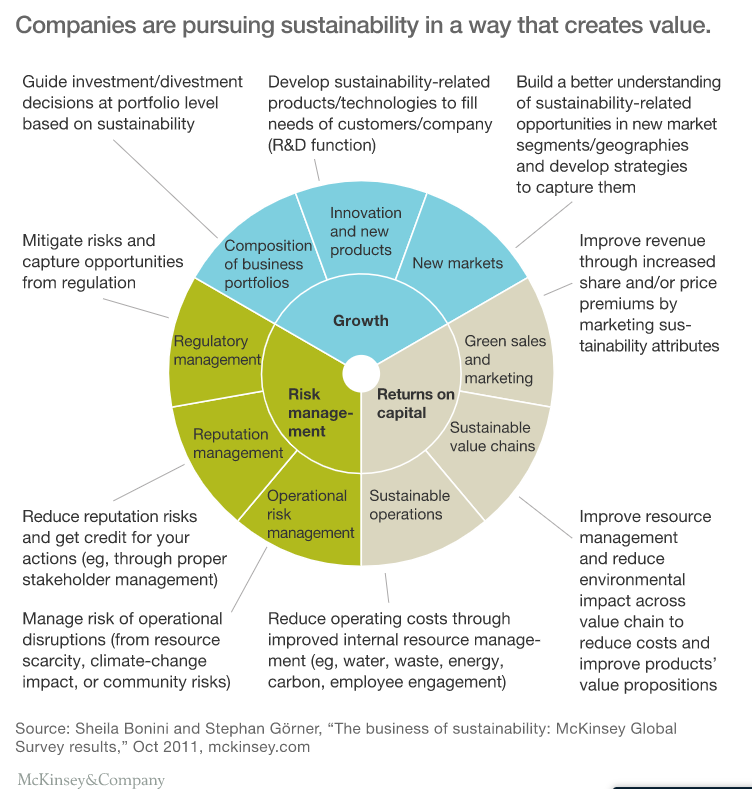On a personal level, it’s often more expensive and less convenient to make eco-friendly choices.
For companies, sustainability can feel like the great unknown, fraught with risks and challenges…
🚫 It’s complicated, technical and difficult to navigate. Your leadership team just haven’t got the headspace.
🚫 Everyone’s got an opinion. The media and public are quick to shame companies that get it wrong. It’s a potential PR nightmare.
🚫 2050 feels like a long time in the future. There are more pressing concerns that need attention right now, and business will have moved on by then.
SO WITHOUT ANY SIGNIFICANT LEGISLATION CHANGES LOOKING LIKELY IN THE NEAR FUTURE, HOW CAN WE MAKE A COMPELLING CASE FOR SUSTAINABILITY, BEYOND THE “FEEL GOOD FACTOR”?
Sustainability is more than a PR initiative or a stale policy document.
It has real potential to unlock significant business growth in a variety of ways…
SUSTAINABILITY IS DIRECTLY LINKED TO RISK MANAGEMENT
With the increase in public awareness and demand for sustainability, many companies look to their marketing department to reap the benefits of green initiatives, and prevent PR disasters when they get it wrong.
But reputational risk is not the only reason for going green.
Committing to sustainability now may prevent regulatory problems in the future.
And with modern supply chains extending around the world, making them vulnerable to natural disasters and conflict, strong sustainability commitments can help eliminate unnecessary operational risks and disruption too.
SUSTAINABILITY DRIVES INNOVATION
Redesigning products and services with sustainability in mind can present new business opportunities.
For example, Nike embedded sustainability into its innovation process in 2012 when it created the Flyknit line – which reduced waste by 85% compared to regular cut and sew footwear. Since its launch, Flyknit has diverted over 182 million plastic bottles from landfill and reduced 3.5 million pounds of waste.
Flyknit was deemed to be the most momentous innovation the fiercely competitive, multibillion-dollar-earning sneaker market had seen in years, bringing in upwards of $1 billion in sales within 5 years of release.
SUSTAINABILITY IMPROVES FINANCIAL PERFORMANCE
Improving operational efficiency through better management of natural resources and minimising waste can lead to significant cost reductions.
Opportunities for process and logistics savings can also be unlocked.
For example, Walmart aimed to double fleet efficiency between 2005 and 2015 through better routing, truck loading, driving training and advanced technologies.
By the end of 2014, they had improved fuel efficiency by 87% – saving nearly $11 million and avoiding 15,000 metric tons of CO2 emissions.
By understanding the widespread benefits of sustainability, we can make a compelling business case that encourages buy-in, support and company-wide behaviour change, led by the C-Suite.
What would you add to the business case for sustainability?
The post Why would you engage with sustainability? appeared first on Ethical Hour.





